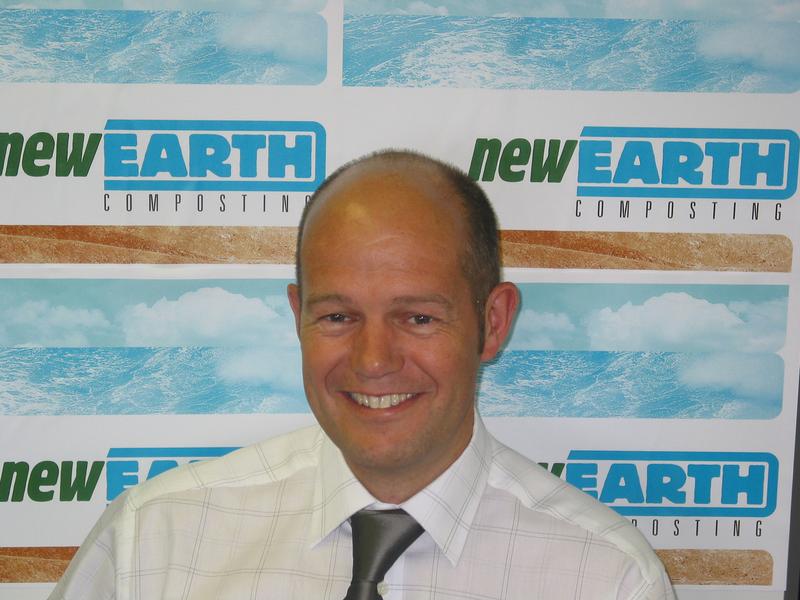 Author Information: Peter Mills has a long history within the composting sector. In addition to his full time job as contracts director at composting firm New Earth Solutions, he is also chairman of the Composting Assocation. Previous to his work at New Earth he worked as a composting manager at Onyx (now Veolia).
Author Information: Peter Mills has a long history within the composting sector. In addition to his full time job as contracts director at composting firm New Earth Solutions, he is also chairman of the Composting Assocation. Previous to his work at New Earth he worked as a composting manager at Onyx (now Veolia). Peter Mills considers whether a different approach for drawing-up waste management contracts is needed.
I was recently in discussions with a consultant acting on behalf of a unitary authority. He had been tasked with undertaking a fundamental review of the authority's waste collection and treatment arrangements.
Having talked around the usual topics of source segregation, collection frequencies, planning permissions, the publics acceptance of change etc etc , we moved on to the subject of how to manage the residual waste stream.
At this point the consultant uttered words of such enlightenment I was compelled to ask him to repeat them. I made this request for two reasons, one so that I could be sure I had heard him correctly and two to make sure that I had understood him.
Although it may not appear that profound the common sense underpinning his thoughts was a revelation, his comment was “I wish to recommend a treatment technology that will be able to accommodate the pace of change associated with waste management”.
Now, simple as this statement appears, for me it contains the essence of what waste management is all about. It is not to put in place technology just because it can be funded, it is not about awarding contracts of a certain length just because they suit a Banks funding requirements and it is not about pre-determining that residual waste will be residual waste for the next 25 years.
Change
We have seen a dramatic change in how we view and deal with our waste over the last 10 years, so why shouldn't this continue for the next 10 years, and beyond.
Whether policies relating to waste minimisation continue to impact or the resource recovery sector continue to find applications for more of the residual waste stream it seems crazy to determine the fate of residual waste for such extended contractual periods.
This situation is compounded by the fact that more often than not the technology being procured is of a single capability and will require constant ‘feeding' for a long long time. The technology is destructive and can only recoup the significant financial outlay required to develop it by destroying waste, aside from some energy recovery at dubious efficiency rates; it has no potential to recover any other significant value from its inputs.
So what happens when waste minimisation initiatives really start to deliver? How will contracting authorities meet their obligations to ‘feed' these facilities? I have heard it mentioned that a reducing level of municipal waste tonnages will be supplemented by the introduction of commercial wastes.
Whilst we know that commercial and industrial waste is the next target for waste management policy makers is the intention only to move it from a landfill disposal route to a thermal option, I was under the impression that as with the municipal sector the principle of the 3 R's (Reduce, Reuse, Recycle) was to apply. The presentation of an ‘all in one skip' disposal route for commercial and industrial waste streams will do nothing to raise awareness within these sectors of resource management.
So back to the consultant who sparked these thoughts. He was adamant that he wanted to procure a range of technologies with which to tackle his client authority's waste stream and interestingly the delivery of additional processing capacity so that commercial and industrial waste within the area may be subjected to the same initiatives and resource recovery principles.
We agreed that the policies and processes employed should allow the authority to meet their statutory requirements relating to recycling and landfill diversion but that they should also be able to embrace emerging targets relating to carbon efficiencies and wider more aspirational environmental objectives.
Close examination of today's landfill diversion and recycling targets will often reveal that the achievement of these is at odds with environmental objectives, how often have we seen recyclables transported hundreds of miles just so that a BVPI target can be met ?
Flexability
It is apparent that a large number of non destructive technologies exist and that they are capable of treating residual waste effectively whilst not predetermining how the waste is treated for ever and a day.
The delivery of these technologies will require the faith of contracting authorities, their advisors and of course the financial institutions.
We as a sector need to encourage the application of a ‘pick and mix' approach to residual waste management and not rely solely on a single facility of limited flexibility and which must be fed today's type and volume of waste for ever more.
Ironically the current trend for procuring interim residual waste treatment contracts may just allow these more innovative and flexible technologies to emerge. After all who will invest in excess of £100m on the basis of a 5 year contract?.
However, those technology providers and operators who have developed a more diverse and flexible approach to residual waste management have been presented with a significant opportunity to deliver real alternatives to the current monoculture that is dominating residual waste management.












Subscribe for free